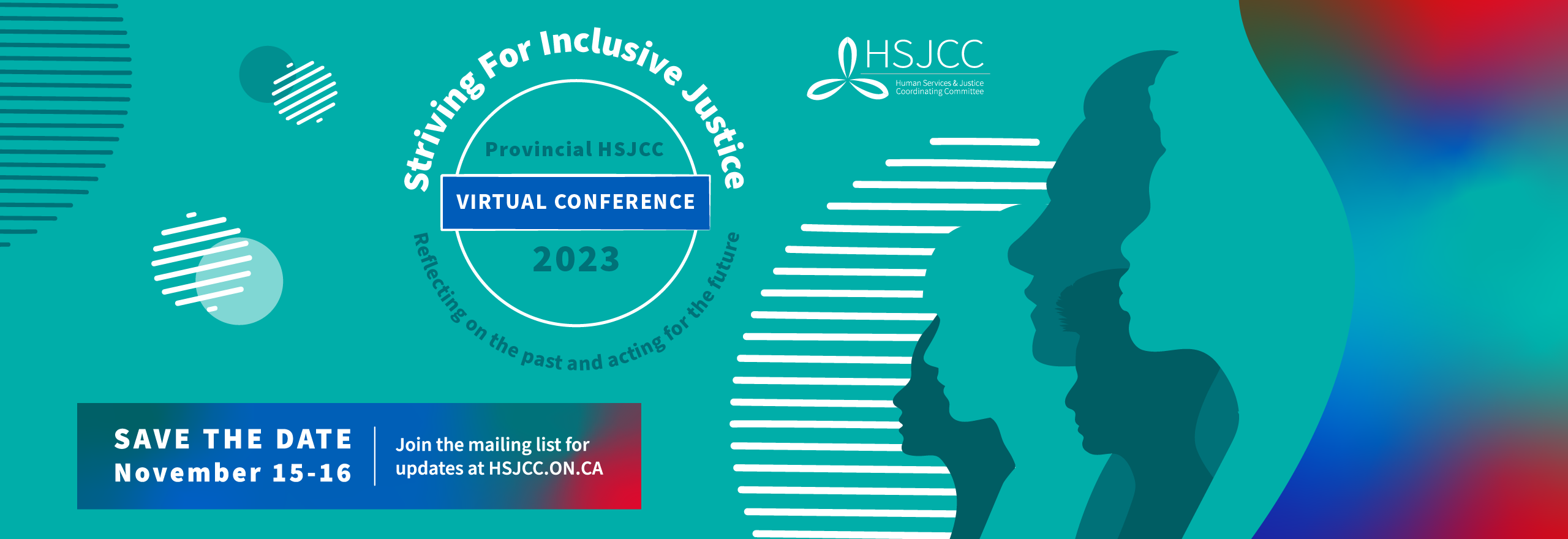A Needs Assessment for Planning Mental Health and Justice Housing – 2019-11-04
For people with justice involvement and mental health or addictions issues, supportive housing can foster stable lives, better health, and reduced service use. But who sets priorities when needs are complex and multiple service systems are involved? CMHA Toronto and
Building a Service Resolution Function in Toronto – Recommendations for Meeting the Needs of People with Complex Mental Health & Justice Challenges – 2015-11-18
We will present findings from our recent research conducted for the T-HSJCC, from which we developed the characteristics of distinctive models of service resolution tailored for the Toronto context, for people with complex mental health and addictions needs involved (or at
Changing Justice Service Delivery to Reduce Returns to Custody [2023-11-15]
Persons experiencing homelessness, mental health and addiction are often stuck in the cycles of the Justice system. This population is denied bail at higher rates and must navigate the complicated system by attending various appointments around their communities or risk
Community Safety and Well-Being Planning – Webinar – 2019-02-15
The Ministry of Community Safety and Correctional Services (MCSCS) will be presenting a webinar about community safety and well-being planning in Ontario for the HSJCC Network. Since 2009, the Public Safety Division at MCSCS has been working on a modernized
Facilitators and Barriers to Building Collaborative and Sustainable Interventions – 2019-11-04
Over the past decade, considerable resources have been spent to implement and validate innovative programs and strategies in youth justice. As these evidence-based programs have proliferated and matured, the need for research to understand the conditions and processes necessary to
Forensic Mental Health and Justice Services in Ontario – 2019-11-05
The 2019 Ontario Budget announced investments of $174 million in 2019-20 to support community mental health and addictions services, mental health and justice services, supportive housing, and acute mental health inpatient beds. This presentation will focus on new investments in
How We Got Here – The Northwest Community Mobilization Network
Over the last 12 months and beyond, the Northwest Center of Responsibility (formerly known as the NWR-HSJCC) has transitioned their HSJCCs by incorporating principles of the Hub/Situation Table model into its structure. This has led to the establishment of
Innovation and Resiliency: Working Towards a New Normal in Service Delivery [2021-11-16]
This presentation highlights organizational changes made to support service delivery in the context of the COVID-19 pandemic with an emphasis on programmatic changes across youth, adult, couples and school based programming. In particular we focus on synergies and unplanned benefits
JHS Learning Hub – Webinar – 2022/03/15
This webinar will provide an overview of the JHS Learning Hub, a first-of-its-kind in Canada free online civil legal training and education platform for frontline staff who serve justice-involved individuals in Ontario, to help break down barriers to accessing civil
Mental Health Diversion Program – 2015-11-17
People living with mental health symptoms or diagnosis, or a developmental disability may access alternatives to criminal prosecution. This process is known as a mental health diversion. If the Crown Attorney believes the symptoms of mental health are related to the
Mobile Crisis Response Teams Framework and Toolkit Webinar – 03-08-2023
As emergency responders, police officers are often the first to arrive on the scene and interact with an individual who may be experiencing a mental health and/or substance use crisis. Over the past 20 years in Ontario, police services and
Mobilizing Communities, Preventing Harm – The North West Community Mobilization Network – 2019-11-05
This presentation will provide an overview of the Northwest Regional Centre of Responsibility (formerly the Northwest Regional HSJCC). It will explain how the Kenora Rainy River District HSJCC and Northwest Regional HSJCC integrated principles of the Hub/Situation Table model into
Navigating the Criminal Justice and Mental Health Systems – 2015-11-17
The mental health and criminal justice systems map – which aims to assist individuals who have come into contact with the law, their friends and family, and service providers, in navigating the two systems – will be outlined. Local and Regional
Older Adults and the Justice System – 2019-11-04
For the first time ever, there are more Canadians aged 65 and older than Canadians below age 15. All areas of the justice system are encountering the older adult population daily and with increasing frequency. Many of these cases pertain
Release from Custody Program – Poster [2023-11]
The Release from Custody program was established to provide short-term transitional case management support to persons with mental health and addictions issues who are leaving detention from a provincial correctional institution. This function is intended to support successful reintegration by
Restorying One’s Story [2023-11-15]
Based on a proprietary learning platform – “Restorying Your Story” provides a healing program that can be used by any organization in and out of Indigenous communities. Managing Partner Michael Gauthier did his PhD cultural studies work in this area.
Situation Tables: An Ongoing Assessment for Effective Implementation – Poster [2023-11]
Situation Tables are one example of a preventative measure implemented to reduce victimization experienced by marginalized individuals. This community-based research project focused on the Situation Table online training that was released by Laurier University in 2016. It examined the overall
Supporting Individuals with Developmental Disabilities through a Justice Clinical Lens – 2019-11-04
In response to the 2016 Ombudsman of Ontario Report, the Community Networks of Specialized Care set out to create a refreshed mandate with the goal of providing individuals with high support and complex care needs access to effective and timely
Supporting Mental Health within the Criminal Justice System [2021-11-17]
Mental health concerns and illnesses are higher among people involved in the criminal justice system than the general population. Without adequate supports and services in the community, many continue to cycle through prisons, hospitals, and shelters – at a great
Supporting People with Serious Mental Illnesses and Reducing Their Risk of Contact with the Criminal Justice System – Webinar – 2017-12-20
People who have serious mental illnesses (SMIs) are increasingly overrepresented in the criminal justice system. But as leaders in behavioral health, psychiatrists are in a unique position to address the complex needs of this population. This webinar provides an overview
Survivors of Homicide Victims and Mental Health – 2019-11-05
Family members and friends of victims of homicide violence face mental, physical, and spiritual health challenges as they learn to survive without their loved one. However, research has historically focused on perpetrators and victims of homicide violence and has neglected
System Navigation in a Complex World – SURPRISE it’s NOT Broken! 2019-11-05
System Navigation/Service Resolution regularly assembles service providers and organizational management representing a range of sectors (e.g., mental health, addictions, housing, police, family services, and other community services) to strategize on ways to meet the needs of individuals who are having
The Art of Restorative Practices: The Advantages of Integrating Creative Practices in Restorative Justice [2023-11-15]
Restorative justice and restorative practices are seeing an ever-increasing popularity by practitioners working in the criminal justice field. While restorative practices exist on a continuum from informal to formal practices, the vast majority of practices employed in the criminal justice
The HSJCC Network in 2018/2019 – Webinar – 2019-08-14
The HSJCC Network: 2018/2019 Every summer, the Local, Regional and Provincial HSJCCs report on the projects they have been working on over the past fiscal year. This reporting process provides us with the opportunity to reflect on everything the HSJCC
The HSJCC Network Member Engagement Plan – 2019-11-05
The HSJCC Network Member Engagement Plan was developed by the HSJCC Secretariat as a part of the Provincial HSJCC’s ongoing work to support the efforts of the Local and Regional committees. The purpose of the Member Engagement Plan is to
The HSJCC Network: Reflecting on the past year and looking ahead
The HSJCC Network is made up of 54 diverse committees across the province which operate at a local, regional and provincial level. Reflecting on the work of the HSJCC Network over the past year, this presentation will provide an overview
Traumatic Brain Injury and the Criminal Justice System – West Toronto Lunch & Learn – 2022-04-19
Learning Objectives: 1. Understand Traumatic brain Injury (TBI) and the associated cognition, communicationand behavioural challenges2. Understand TBI as a risk factor for criminal justice involvement and the prevalence incorrectional populations3. Understand supervision condition challenges for people with TBI4. Learn strategies
What You Need to Ask Me – New Tools and Training to Enhance Mental Health Legal Advocacy – 2015-11-17
Legal advocates are professionally bound to operate on the basis of client instructions – but identifying those legal options is closely tied to understanding where a client is coming from and the issues in their life. Legal Aid Ontario and the Canadian


